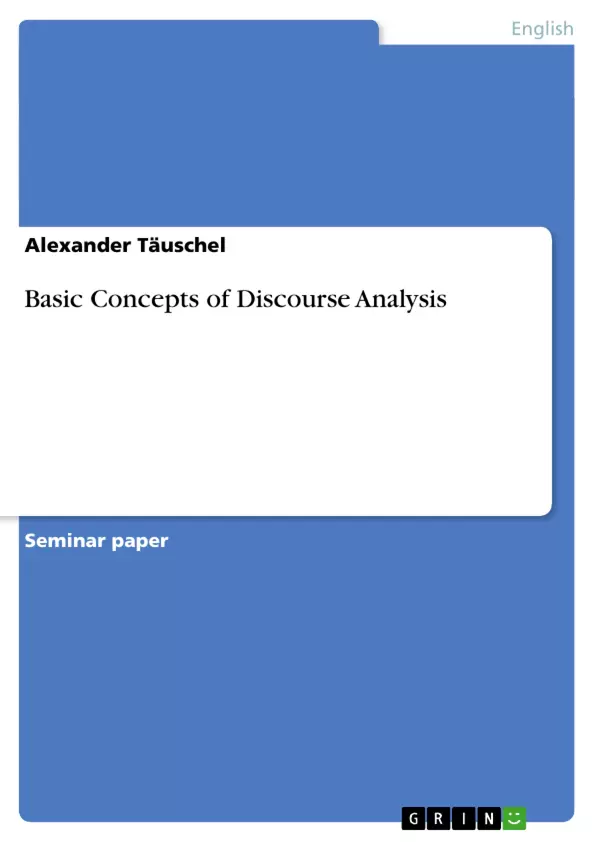This paper has been designed to provide an efficient overview of theoretical discourse analysis by discussing the following questions: – What is discourse analysis – defining the difference between the terms text and discourse and discourse analysis itself.
As well as: What are the basic concepts and aspects of discourse analysis – taking a closer look at context, coherence, the importance of background knowledge and the differences between spoken and written language. And finally: What are the uses of discourse analysis – investigating on the problem of application and social relevance of discourse analysis.
Inhaltsverzeichnis (Table of Contents)
- Introduction
- What is Discourse Analysis?
- What is Discourse?
- What is Text?
- Some Attempts to Define Discourse Analysis
- Concepts and Aspects of Discourse Analysis
- Context
- Coherence
- Background Knowledge
- Differences between Spoken and Written Language
- The Application and Social Relevance of Discourse Analysis
- Bibliography
Zielsetzung und Themenschwerpunkte (Objectives and Key Themes)
This paper aims to provide a concise overview of theoretical discourse analysis. It investigates the key concepts and aspects of discourse analysis, including the differences between "text" and "discourse," context, coherence, background knowledge, and the distinctions between spoken and written language. It also explores the applications and social relevance of discourse analysis.
- Defining Discourse Analysis
- The Relationship between Text and Discourse
- Key Concepts in Discourse Analysis: Context, Coherence, and Background Knowledge
- Distinguishing Spoken and Written Language
- Applications and Social Relevance of Discourse Analysis
Zusammenfassung der Kapitel (Chapter Summaries)
The paper begins by defining the terms "discourse" and "text," highlighting their distinct meanings and the debate surrounding their interchangeability. It then delves into the central concepts of discourse analysis, including context, coherence, and background knowledge. The paper examines the role of context, differentiating between linguistic and non-linguistic contexts, and explores the importance of coherence in constructing meaningful discourse. Additionally, it discusses the role of background knowledge in understanding and interpreting discourse. The paper concludes by exploring the applications and social relevance of discourse analysis, emphasizing its role in understanding communication and social interaction.
Schlüsselwörter (Keywords)
The paper focuses on the core concepts of discourse analysis, such as context, coherence, background knowledge, text, discourse, spoken language, written language, and the applications and social relevance of discourse analysis. It explores the differences between text and discourse, highlighting the importance of context and background knowledge in understanding communication.
- Quote paper
- M.A. Alexander Täuschel (Author), 2004, Basic Concepts of Discourse Analysis, Munich, GRIN Verlag, https://www.grin.com/document/120981



